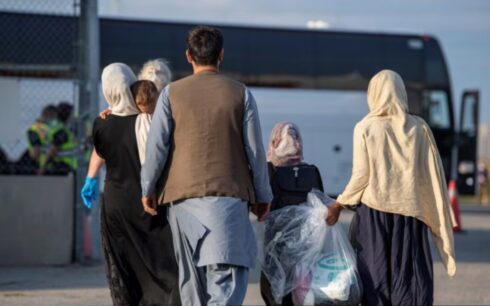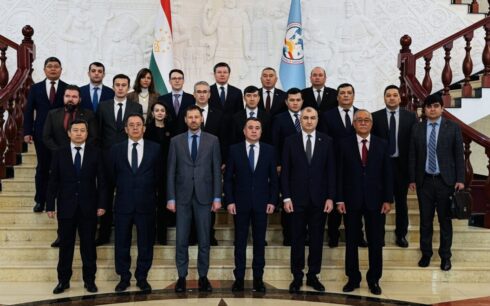Pakistan’s ambassador to the United Nations Munir Akram on Tuesday hit out at Afghanistan’s charge d’affaires to the UN, Naseer Ahmad Faiq, and told the Security Council that Faiq “represented no one but himself”.
Once Akram had finished his speech, Faiq, who was appointed to the position by the former government, requested permission from the council’s chair to respond to Akram’s comment.
He said he was “representing Afghanistan at this council and speaking about the anguish and the misery” of the people of Afghanistan who have suffered from the “interference of countries that played a double standard”. He said on the one hand these countries “show they are a victim of terrorism” and on the other hand “lobby and normalize and support another terrorist group in Afghanistan.”
Akram in turn requested permission from the chair to respond and said he thinks Faiq’s “credentials are questionable, he has no government, he has no representative, he has no credentials and it is an anomaly that the Security Council is obliged to invite him to speak to this council.”
Akram also accused Faiq of presenting disinformation before the council and said: “I believe the General Assembly should take notice of this situation; it is a huge anomaly, a political anomaly that needs to be addressed.”
In his speech to the council, Faiq stated that in the two years since the Taliban regained control of the country, the situation has deteriorated across humanitarian, human rights, social, political and security spheres. He pointed out that the economic and humanitarian crises have deepened and that 97% of the population is now living in poverty.
He also noted that unemployment has increased and migration continues.
“Under Taliban rule, social conditions in Afghanistan continue to regress significantly,” he said, adding that the rights of women and minorities have been “severely curtailed.”
Faiq also said the Taliban’s “focus has been to identify the establishment of madrassas and religious schools, deliberately radicalizing the Afghan youth, and compromising their future and that of our nation.”
Since the Taliban takeover of Afghanistan, 15,000 madrassas have been established and at least 100,000 teachers have been recruited to these religious schools, he said.
“It is our duty to liberate Afghanistan from the shackles of gender apartheid, radicalization and extremism, allowing our women, girls and youth to contribute to our society’s growth and prosperity,” Faiq said.
No Condemnation by Russia or China
Almost all council members, except for Russia and China, called the Taliban’s policies abhorrent and unacceptable and demanded that Taliban leaders end their misogynistic policies.
But in her remarks to council members, Anna Evstigneeva, deputy Russian representative to the U.N., said: “We are keen to develop relations with Kabul.”
She added that a Taliban delegation, along with representatives from Indonesia, Turkey and several regional countries, have been invited to a meeting about Afghanistan in Kazan, Russia, on Friday.
Although China did not condemn the Taliban for its policies, Beijing’s representative did urge the Taliban to respect the rights of women and form an inclusive government.
“We expect the country’s authorities to build political inclusivity and govern with moderation, develop good neighborly cooperation, protect the rights and interests of ethnic minorities and women and girls and make positive efforts in the interests of its people.”





